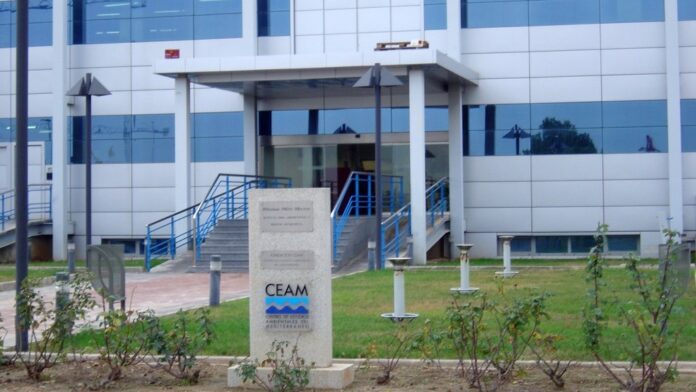The Ministry of Environment, Infrastructure and Territory, through the Centre for Environmental Studies of the Mediterranean (CEAM), has carried out research on the impact of heat waves and the increase in sea temperature.
The work, carried out by the Department of Meteorology and Climatology of the CEAM, shows that, due to climate change, the first heat wave of each summer has advanced at a rate of four days per decade since 1985, the year from which 90% more heat waves have occurred.
The general director of Quality and Environmental Education, Jorge Blanco, has pointed out that “these scientific studies help us to prevent the action of climate change and the impact of extreme weather phenomena”. Along these lines, he indicated the important tool these analyses represent. “The integrated and multidisciplinary research carried out by the CEAM combines state-of-the-art observations and high-resolution modelling, taking into account the different components of the climate system (soil, vegetation, atmosphere and ocean), as well as their interactions”, he stated.
The phenomena investigated by the Department of Meteorology and Climatology include torrential rainfall, drought, and episodes of extreme heat, which are becoming permanent features of summer. A common occurrence on the Mediterranean coast was the autumn Gota Fria, now renamed as the DANA phenomena, where higher sea temperatures in the summer start to cool, resulting in the infamous “cold drop” once the weather conditions reach the lower temperature land.
For this reason, the analysis of heat extremes in present and future periods “is crucial for the development and design of adaptation measures in order to minimise the adverse effects”, said Blanco.
In addition, the CEAM focuses on the impact of heat waves on the health of the population, as well as the repercussion of the urban heat island effect, that is to say the reason why urban areas experience temperatures higher than the surrounding areas. We have seen an increase in heat related deaths this year.
On the other hand, the CEAM research group continuously monitors the conditions of the Mediterranean Sea to obtain data that is published periodically. In this way, the water temperature can be analysed by observing the climatology report of the Sea Surface Temperature (SST) in the Mediterranean basin which also serves as an indicator of the effects of climate change.





